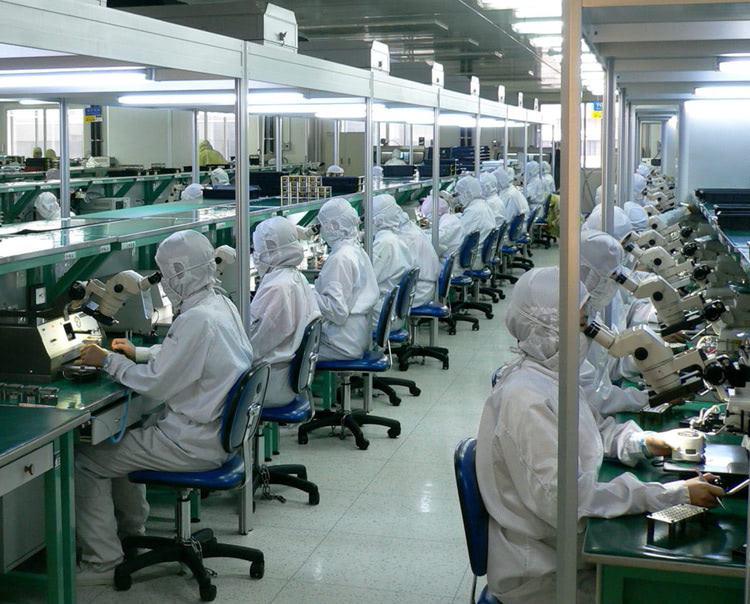Workers and Technology: Digital revolution, jobs changing faster than ever

A new Commission on Workers and Technology chaired by Yvette Cooper MP is launched today with the publication of new evidence on British workers‘ hopes and fears for automation over the next decade.
 In response to the report’s findings that more than six million workers in the UK fear being replaced by machines, Rupal Karia, Head of Commercial Sector at Fujitsu UK & Ireland has shared his thoughts on the future of the workforce in light of emerging technologies such as AI and why the responsibility for helping the public on this journey shouldn’t be down to just the government:
In response to the report’s findings that more than six million workers in the UK fear being replaced by machines, Rupal Karia, Head of Commercial Sector at Fujitsu UK & Ireland has shared his thoughts on the future of the workforce in light of emerging technologies such as AI and why the responsibility for helping the public on this journey shouldn’t be down to just the government:
“Instead of looking at how technologies can reduce jobs, we should be looking at how they make way for employees to spend more times focusing on their ‘customer’, ‘client’ or ‘patients’. A digital-first nation has meant that a huge amount of jobs are being – and will be created – in lieu of those that are at risk of disappearing.
“If our nation is to remain competitive, it is vital that new jobs are created which will help make a better society. Emerging technologies such as AI and driverless cars are completely transforming Britain. But for these changes to remain positive, there is an urgent need for technology companies to take responsibility and ensure innovation is helping all people from all corners of the UK.
“In our latest report this notion was strongly echoed by the general public: where advances in technology do displace jobs, almost two-thirds (60 percent) believe technology companies are responsible for reskilling displaced workers.
“If we are to ensure the UK lives up to its digital potential, it is not just the responsibility of the government to educate the public and help them on this journey; the tech sector and UK companies should join forces with the government to ensure the UK remains a global leader in an increasingly digital world.”
Many tech industry figures are optimistic about the potential of this technology, including the CIO of IT firm Insight, Michael Guggemos who said:
“Fears of mass job displacement by Artificial Intelligence are misplaced – the technology has intelligence, but not wisdom, and that limits what it can accomplish by itself. The real impact of AI on the employment market over the next few years will be to shift people from one role to another, and to create new roles.
“This migration does not represent a great rupture in the jobs market, but a continuation of what has always happened with new technologies that automate tasks, going back to the first industrial revolution; the lowest skills are replaced by higher skills.
“A lot of these new jobs will be centred around understanding and managing the technology, as the limitations of machine learning means it needs human wisdom to guide it. For example, automating a business process like parsing a legal contract requires somebody to set up and coach the technology until it can do its tasks on its own. During this implementation period, the person involved develops valuable new skills in AI which can be translated over to other areas where businesses want to use AI and can be used to manage a ‘team’ of AI bots.
“To prepare for this future, organisations need to lay the groundwork for a shifting but connected workforce, enabling people to learn the skills that will see them prosper as AI enters the workplace.”
Dominic Harvey, Director at CWJobs, said:
“The fear of losing jobs to automation is clearly of growing concern. It is the responsibility of employers in Tech and IT to ensure they upskill staff in order to evolve their capability and keep up with developing technologies. Ideally, the Government would offer incentives for companies to train existing staff to help the UK IT and tech sector keep pace with the rest of the world.
“However, this is unlikely to happen in the short-term, so the onus will remain on employers to provide this training themselves. Expect to see companies working harder than ever before to support their workforce and create a strong company culture that will encourage staff, improve their skillsets and job versatility, and ultimately, boost workers’ morale.”
The two year commission organised by the trade union Community and the Fabian Society will identify the immediate actions that government, employers and trade unions need to take to support workers as technology impacts on jobs during the next 10 years.
Launching the commission and commenting on the poll findings, Yvette Cooper MP, Chair of the Home Affairs Select Committee, said:
“The digital revolution means technology and jobs are changing faster than ever.
“This survey of workers found that almost a quarter of workers are worried that their job will no longer be needed.
“And whilst it found that most people are optimistic that they will be able to change and update their skills, they also say they are not getting any help or support to train or adapt from the government, their employer or a trade union.
“It is vital that action is taken now to ensure changing technology doesn’t widen inequality and to make sure all workers feel the benefits.
“Technology can have great benefits as well as create new challenges. Almost half of those surveyed said they thought their job would improve with new technology, however nearly a quarter were worried that their job would go altogether. It’s vital that action is taken now to make sure technology creates new better jobs and that all workers benefit from new technology. We have to make sure that automation and the digital revolution don’t widen inequality and that everyone gets the help and support they need to get on.
“I am delighted to be chairing the Commission on Workers and Technology and thank Community and the Fabian Society for initiating this vital work. We need to ensure that automation is an opportunity and not a threat for British workers.”
Roy Rickhuss, General Secretary of Community, said:
“These figures should serve as a wake-up call for all trade unions. The vast majority of workers in unionised workplaces do not believe we are supporting them to cope with technological change.
“Automation cannot simply be opposed, rather it should be made to work in the interests of working people. Our members are already dealing with the consequences of automation being managed badly. Government and business need to step up too, but trade unions have a central role to play.
“Our movement has been at the forefront of social change over the past century, but without urgent action we risk being left behind as the jobs of the next century are born. This commission is an ambitious piece of work that will take us out of our comfort zone and we are delighted that Yvette Cooper has agreed to lead this work over the coming months.”
The Commission on Workers and Technology will address:
- How to ensure technology change leads to good jobs not bad ones;
- How to support workers to adapt and re-skill; and (3) how government, employers and trade unions can work positively together on this agenda.
The commissioners are drawn from organisations including: the TUC, Prospect union, Community, Sage, Google, Nesta and the University of Oxford. View the commissioners here.
Call for evidence
The commission will develop proposals for national government policy but it also aims to have a direct impact on workplaces. The project has been instigated by Community partly with the aim of developing the union’s own thinking on how it should work in partnership with employers as they adopt new technologies.
They are seeking responses from all interested parties, including employers, industrial associations, the trade union movement, government departments (both in the UK and other countries), local government and local enterprise partnerships, academia, think tanks, and professional organisations.
View the call for evidence here.
Also published today was the Universities UK report, ‘Solving future skills challenges‘ which highlights the need for continual skill upgrading, lifelong learning and study of higher education qualifications at all levels.











Responses